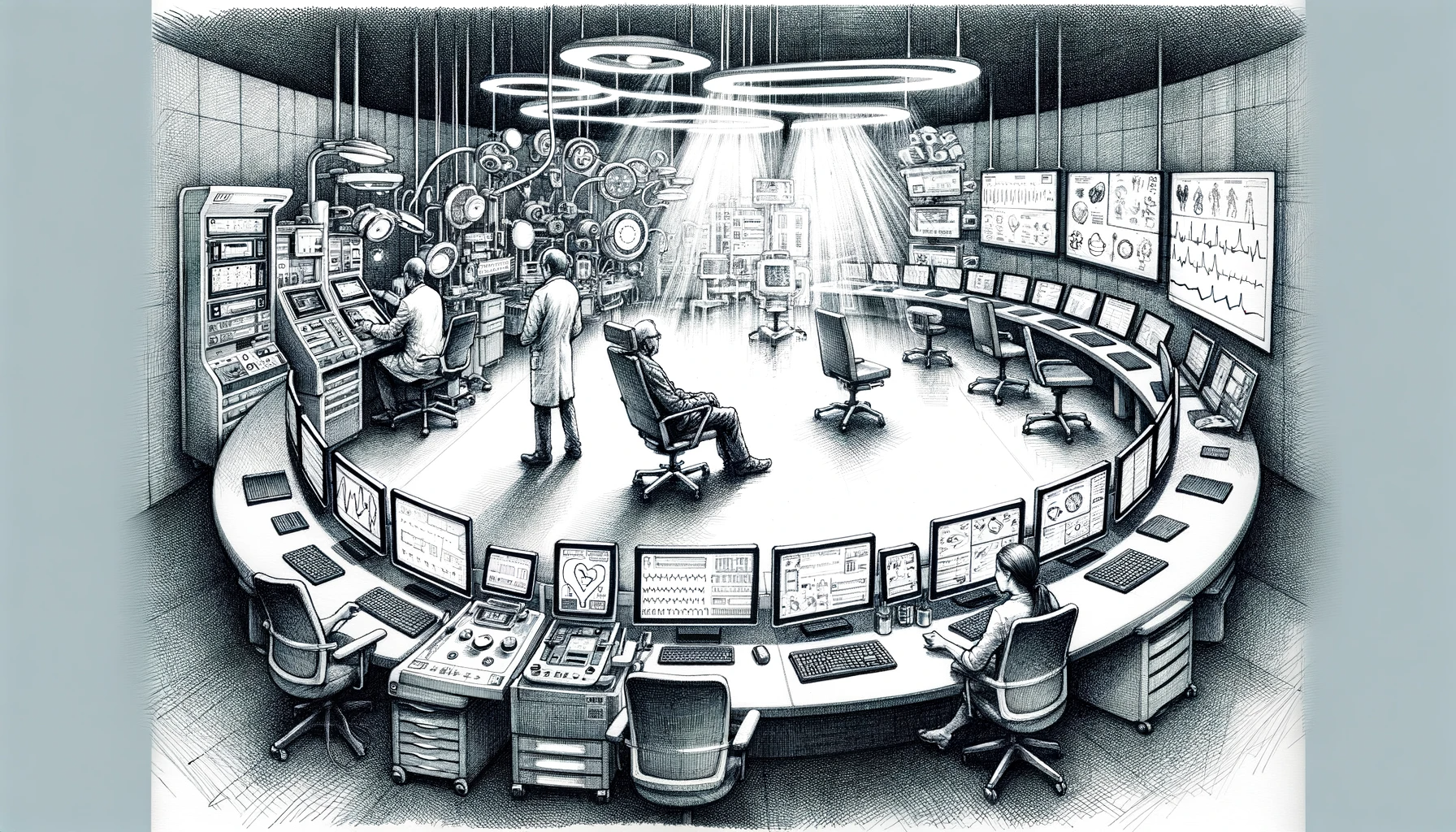The art of physical examination is being lost. Most doctors interrupt patients in seconds. It's been known since the dawn of modern medicine that your history, or the story you tell us of your issue, often informs us of possible diagnoses. Furthermore, combine that with a good physical examination, and the picture should be clearer. Yet, somehow, this art of taking a history and performing an examination is disappearing rapidly... with significant potential downstream implications. I am republishing this from my website... I think it's an important topic that needs to come to the forefront.
A paradox emerges in the evolving landscape of modern healthcare: as technology advances, the traditional human-centered aspects of medicine, such as the art of physical examination, are diminishing. This shift towards a high-tech, low-touch approach raises profound questions about the future of healthcare and the role of physicians. Simultaneously, doctors are increasingly apprehensive about the potential of artificial intelligence (AI) and robotics to supplant their roles. Ironically, in response to this threat, many physicians inadvertently adopt behaviors reminiscent of the robots they fear, thereby exacerbating the issue.
The art of physical examination has long been a cornerstone of medical practice. It represents not just a diagnostic tool but a ritual that establishes trust and connection between doctor and patient. However, with the advent of sophisticated diagnostic technologies, the emphasis on physical examination has waned. Imaging and lab tests often precede, and sometimes even replace, hands-on assessment. While these technologies can arguably enhance diagnostic accuracy, they also create a literal and figurative barrier between the physician and the patient.

The decline in physical examination skills is not just a nostalgic loss; it has practical implications. Studies have shown that many diagnoses can be made or significantly narrowed down through a thorough physical exam. The over-reliance on technology can lead to unnecessary tests, increased healthcare costs, and, potentially, a delay in treatment. MRI scans will reveal things in everyone. Therefore, context is important to determine if the finding is worthy of consideration as a source of pain or disability. It is very hard to put findings in context without listening to our patients and carefully examining them. Furthermore, the physical exam conveys to the patient a sense of being seen and understood, which is fundamental to the healing process.
Simultaneously, the rise of AI and robotics in healthcare has ignited a fear among physicians of being rendered obsolete. AI algorithms can process and analyze vast amounts of data with precision and speed that surpass human capabilities. Robotics in surgery and other areas of medicine promise higher precision and efficiency. This technological prowess, while beneficial, stirs an existential anxiety among doctors about their irreplaceability.
However, in reacting to this fear, many doctors are unwittingly mirroring the characteristics of machines. There’s an increasing trend towards protocol-driven care, where standardized guidelines overshadow personalized treatment. While standardization is essential for ensuring quality and reducing errors, an overemphasis on protocols can make care feel mechanical and impersonal. Physicians, caught in the whirlwind of efficiency, electronic health records, and bureaucratic demands, often find themselves interacting with screens more than with patients, furthering the impression of a robotic demeanor.
Moreover, the pressure to keep pace with AI and technological advancements pushes some physicians to prioritize technical knowledge over the humanistic aspects of care. They become more focused on data and diagnostics, losing sight of the empathetic and relational elements that define the art of medicine. Ironically, this shift makes them more akin to the AI and robotics they fear, who, while adept at processing data, lack the capacity for empathy, compassion, and a nuanced understanding of human experiences.
This situation presents a complex challenge: How can physicians integrate the benefits of technology while preserving the human touch that is fundamental to healthcare? The answer lies in recognizing the unique strengths that human practitioners bring to medicine. Empathy, ethical judgment, and the ability to understand the patient’s experience and context are qualities that AI and robotics cannot replicate.
Re-emphasizing the importance of the physical examination is one way to preserve these human elements. It requires skill, attentiveness, patience, and the ability to connect with the patient. Educational curricula for healthcare professionals need to reinforce these skills as equally important as technical knowledge.
Furthermore, physicians must advocate for a healthcare system that balances efficiency with the need for human connection. This might include allocating more time for patient visits, reducing the bureaucratic burden on doctors, and using AI and technology as supplements to, rather than replacements for, human judgment.
In conclusion, the future of healthcare lies not in choosing between technology and human touch, but in harmonizing the two. Physicians must navigate this landscape by embracing technology’s benefits while championing the irreplaceable elements of human care. By doing so, they will not only dispel the fear of being replaced by machines but will also redefine their role in a way that is both technologically advanced and deeply human. This balance is crucial for a healthcare system that heals not just the body but also the human spirit.




